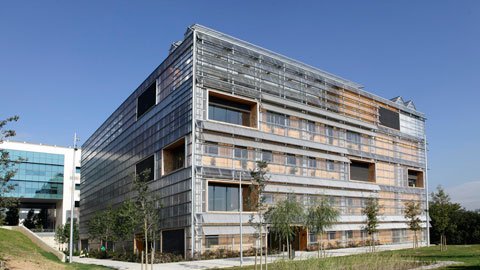ICTA-UAB awarded the "María de Maeztu” Unit of Excellence Award for the second consecutive time
The ICTA-UAB has been accredited a Maria de Maeztu Unit of Excellence Award for the second consecutive time. This programme by the MICINN recognizes excellence in scientific research and includes a grant of 2 million euros throughout a four-year period.

The Institute of Environmental Science and Technology of the Universitat Autònoma de Barcelona (ICTA-UAB) has been accredited a Maria de Maeztu Unit of Excellence Award for the second consecutive time by the Spanish Ministry of Science and Innovation. This program aims to recognize excellence in scientific research and includes a grant of 2 million euros throughout a four-year period. The Spanish State Research Agency (AEI) announced on 15 July 2020 the provisional resolution of its latest call, which recognizes excellence in stable research organisations without a legal personality and located mainly in universities.
The María de Maeztu Excellence Accreditation recognizes and provides funding to research organizations that demonstrate scientific impact and leadership at international level and that actively collaborate with their local social and business environments. The awards distinguish those organizations that have highly competitive, frontier research programs that are among the best in the world in their respective scientific areas.
An independent, international scientific committee made up of researchers of renowned prestige and impact carries out the evaluation and selection process for the María de Maeztu Units of Excellence. The accreditation is valid for four years. The ICTA-UAB will consolidate its scientific capabilities, contribute to the leadership of Spanish research and act as an international pole of attraction for talent.
This is the second time the ICTA-UAB receives this recognition. The first time was in 2016, when the scientific committee reported that there are few places in Europe that can boast of such a rigorous international perspective. In the past four years and under its Strategic Research Programme, its research has focused on establishing the current state of knowledge on climate change and its socio-economic impacts, and on putting forward transformative solutions at the local and regional levels. This has been done through five multidisciplinary strategic projects.